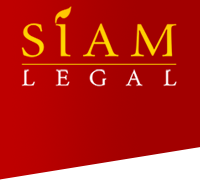Arrested in Thailand: What to do?
Thailand has a reputation for being a country where the laws are flexible. Some foreigners like to test this reputation by committing acts which they would never do in their home country. While Thailand is a wonderful place for a holiday, the country does have laws. When someone breaks those laws, they will be arrested. So what should you do?
All foreigners in Thailand are required to carry their passport or identification which shows that they are in the country legally. Traveling in the country without proper identification will get you incarcerated. So be sure to have proper identification with you at all times.
If you get stopped by the police, explain the situation. If they attempt to arrest you, don’t resist and keep your temper. The Thai police may physically place you in submission if you resist arrest. Contact your local consulate or embassy when given the opportunity.
The local consulate cannot get you out of jail but they will inform your family and friends of your whereabouts. In addition, they will provide you with information on the criminal process and a list of local criminal attorneys who speak English.
If you locate a criminal attorney who speaks English, hire them. Thai is a difficult language to learn and the criminal legal system is hard to navigate even for natives. A local attorney will keep you updated on your case and represent your best interests.
If you cannot afford an attorney, the court will appoint an attorney on your behalf when the criminal charge carries a maximum penalty of 10 years or more. If the criminal charge has a maximum penalty of less than 10 years, it is in the discretion of the court whether to appoint you an attorney. Most court appointed attorneys are young, inexperienced, and speak little or no English.
After your arrest, you may be eligible for bail. For small cases, the bail can be paid at the police station immediately after the arrest. For larger cases, the bail can be paid after the first court appearance which may occur after 12 days in holding. If bail has been paid, the court will usually hold your passport until the next court date which may be in 6 to 8 weeks.
The best precaution is to stay out of trouble. Temper your activities to ensure that you do not run afoul with the law. Try to stay away from any actions which may be construed as political or critical of the royal family. Be respectful of the culture and learn its customs before coming to Thailand.
It is so much more enjoyable to stay at a beach resort than in a Thai jail cell. There is so much to do in Thailand. Stay away from illegal narcotics and drink responsibly.
Category: Litigation
About the Author (Author Profile)
Siam Legal is an international law firm with experienced lawyers, attorneys, and solicitors both in Thailand law and international law. This Thailand law firm offers comprehensive legal services in Thailand to both local and foreign clients for Litigation such as civil & criminal cases, labor disputes, commercial cases, divorce, adoption, extradition, fraud, and drug cases. Other legal expertise of the law firm varied in cases involving corporate law such as company registration & Thailand BOI, family law, property law, and private investigation.











